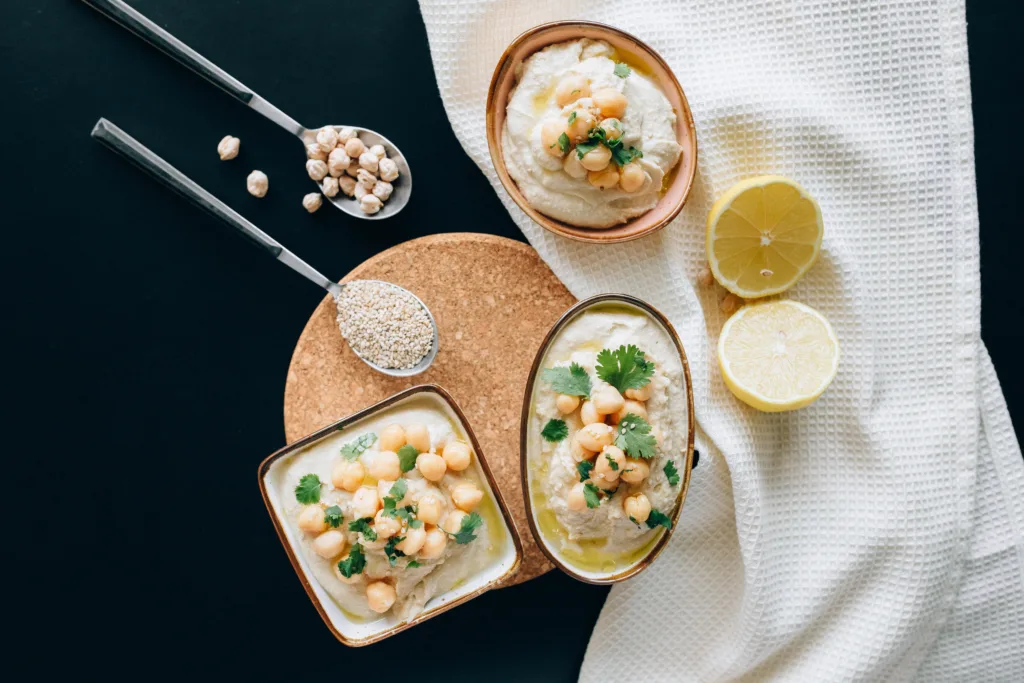Unlocking the Secrets of Weight Loss with the Mediterranean Diet
The Mediterranean diet seems to be on everyone’s radar lately, and for good reason. This time-tested way of eating, deeply rooted in the traditional food cultures of Mediterranean countries like Greece, Italy, and Spain, has been praised far and wide for its ability to boost health and longevity. But what really gets people excited is that the Mediterranean diet can also lead to sustainable weight loss.
In this post, I want to give you a complete picture of how adopting Mediterranean eating habits can reshape your health and your waistline. We’ll dive into the history and core tenets of the Mediterranean diet, highlight its most nutritious and delicious staple foods, and cover lifestyle tweaks that make lasting weight loss achievable. You’ll find inspiring real-life success stories, meal planning tips, and practical advice for smoothly transitioning to this powerhouse diet.
My goal is to help you truly understand how to use the Mediterranean mosaic to lose weight and nourish your body. Once you learn how to remix and recreate this ancestral eating pattern to fit your tastes and lifestyle, you’ll have a blueprint for shedding pounds while still feeling satisfied and healthy. Let’s get started unlocking the secrets!

The Mediterranean Diet Unveiled
To appreciate how the Mediterranean diet can lead to weight loss, it helps to first understand what it really entails. At its core, this diet emphasizes natural, minimally processed foods like vegetables, fruits, beans, nuts, whole grains, herbs, and healthy fats like olive oil. It limits sugars, excess salt, and unhealthy fats. Red meat is enjoyed sparingly while seafood, poultry, eggs, cheese and yogurt are incorporated in moderation. Maybe most apparent—and most appealing—is that the Mediterranean diet is not just about specific nutritional components. It encapsulates an entire lifestyle and cultural approach to food, cooking, and eating that is more experiential than prescriptive.
Some overarching principles characterize the Mediterranean diet:
- Plant foods like fruits, vegetables, whole grains, beans, nuts and seeds make up the bulk of meals.
- Olive oil replaces butter and margarine as the main cooking and dressing fat.
- Herbs, spices, garlic and lemon juice amp up flavor instead of salt and sugar.
- Seafood, eggs, poultry, yogurt and smaller amounts of cheese appear a few times a week rather than daily red meat.
- Wine is enjoyed moderately with meals by those who wish.
- Being active and sharing meals with others are part of the lifestyle.
This flexible, food-as-pleasure approach checks all the boxes for supporting good health and weight loss. The abundance of fiber-rich plant foods promotes feelings of fullness and satisfaction. Choosing “good” fats over unhealthy saturated fats facilitates weight management. And the diet as a whole creates a customizable framework for eating fewer calories without constant hunger or deprivation. Read on to discover the specific foods and habits that allow the Mediterranean diet to deliver on its weight loss promises.

Nutrient-Rich Mediterranean Staples
At the base of every Mediterranean meal or snack are key whole foods that should make up the majority of what you eat each day. These nutritional power players do double-duty by providing bulk and plant-based nutrients while also keeping you feeling full:
Whole grains like whole wheat bread, oats, brown rice, quinoa, and barley supply satisfying fiber, protein and sustained energy. Enjoy a serving or two at each meal to curb appetite.
Produce is the star attraction, so fill half your plate with fruits and vegetables. Their bright colors represent a range of antioxidants and phytonutrients that boost health.
Beans, lentils, and peas deliver plant-based protein, fiber, and minerals. Their low glycemic impact helps stabilize blood sugar. Work these nutritious legumes into meals.
Nuts and seeds, despite being high in calories and fat, may support weight loss when eaten in moderation thanks to their protein, fiber and healthy fats. Enjoy them as crunchy salad toppers or nutritious snacks.
Olive oil and olives drench foods in anti-inflammatory monounsaturated fats that support satiety and heart health when used to replace saturated fat sources. Drizzle that olive oil liberally!
Yogurt and cheese, especially Greek or fresh white cheeses, offer protein, probiotics and bone-building calcium. Pair yogurt with berries or enjoy a crumbling of feta over vegetables.
Herbs, spices and garlic amp up flavor naturally so you can use less sugar, salt and unhealthy fats. Experiment with Mediterranean seasonings!
Water is the perfect no-calorie beverage for staying hydrated and preventing overeating. Squeeze in a lemon or lime wedge for Mediterranean-style.
With meals and snacks loaded up with satisfying whole foods like these, it becomes seamless to follow a lower calorie eating pattern that still tastes delicious while promoting weight loss.

Fats That Aid Weight Loss
One of the most effective weight loss strategies of the Mediterranean diet is its emphasis on heart-healthy unsaturated plant fats instead of saturated animal fats or trans fats. Though the Mediterranean diet derives 35-40% of calories from fat, these primarily come from “good” unsaturated fats that are associated with less abdominal fat and lower body weight compared to saturated fats.
Here’s the skinny on the healthy fats championed in the Mediterranean lifestyle:
Olive oil provides monounsaturated fatty acids and antioxidant polyphenols that boost heart health. Use high quality extra virgin olive oil liberally as your default cooking and dressing oil.
Olives serve up taste and nutrition in one appealing package with their oleic acid, fiber and antioxidant content. Sprinkle chopped olives into salads or veggie dishes or enjoy them as appetizers.
Nuts and seeds give you fiber, protein and unsaturated fats that may help promote feelings of fullness when eaten in moderation. Sprinkle them onto oatmeal, salads or even main dishes.
Avocados deliver antioxidants and monounsaturated fats that may enhance absorption of nutrients from other foods. Mash them up to liven your toast, sandwiches or dips.
Fish like salmon and sardines provides anti-inflammatory omega-3 fatty acids. Aim to eat at least 8 ounces a week.
Plant-based oils like safflower or sunflower oil also contribute more monounsaturated fats. Olive oil still reigns supreme, but these can provide variety.
Choosing predominantly unsaturated plant fats facilitates reducing intake of saturated fat from meat, butter and full-fat dairy—a change that directly bolsters weight loss results.
Protein-Packed Mediterranean Delights
While plant foods rule in the Mediterranean diet, lean proteins still play an important supporting role. Fish, shellfish, eggs, poultry, yogurt, cheese and legumes are encouraged in moderation. Red meat appears only occasionally. These protein-rich foods offer nutrients as well as satiating protein.
Some tasty Mediterranean protein sources to work into meals include:
Seafood, especially fatty fish like salmon or sardines, provides omega-3 fatty acids that reduce inflammation. Eat at least 8 ounces per week.
Chicken and turkey are lean poultry options that are perfect for herb and spice rubs or olive oil marinades.
Eggs cook up quickly for breakfast, lunch or dinner and deliver antioxidants like lutein and zeaxanthin too.
Beans, lentils and peas make meatless meals more satisfying with their fiber and plant-based protein. They’re budget-friendly too!
Greek yogurt gives you protein, gut-friendly probiotics and calcium in one portable snack.
Nuts offer plant-based protein and healthy fats. Try almonds, pistachios or walnuts. Nut butters also make a flavorful spread.
Cheeses like feta, Parmesan, fresh mozzarella or goat cheese crumbles provide savory flavor in small amounts.
Varying your protein sources ensures you get an array of nutrients while still keeping portions in check for weight loss.
The Power of Mediterranean Spices
One secret weapon for infusing Mediterranean dishes with irresistible flavor is making generous use of fresh and dried herbs, spices, and aromatics. Typical Mediterranean seasonings include fragrant basil, mint, dill, rosemary, oregano, saffron and thyme. Using this herb and spice bounty to add interest to dishes naturally helps cut back on excess salt, sugar and fat that derail weight loss efforts.
Some tips for pumping up flavor with Mediterranean spices:
- Rub chicken or fish with minced garlic, rosemary, oregano and lemon before baking.
- Sauté onions, shallots or leeks in olive oil and add to grains or veggies before roasting.
- Brighten up salads with torn basil, chopped mint or dill.
- Toss chickpeas or potatoes with smoked paprika, cumin and chili powder.
- Infuse water or tea with fresh herbs like lavender, sage or lemon verbena.
- Season fish with saffron threads, cracked black pepper and lemon zest.
- Sweeten oatmeal or toast with a dash of cinnamon instead of sugar.
- Marinate meats in anise, garlic, lemon and olive oil.
Playing around with herbs, spices and seasoning combinations prevents your healthy Mediterranean meals from becoming monotonous. Discovering new flavors makes it easier and more enticing to stick with this diet.

Meal Planning and Portion Control
With so many delicious Mediterranean diet foods to choose from, it’s helpful to have some meal planning tips to pull it all together:
Build meals around vegetables and whole grains. Fill half your plate with veggies and greens and the other quarter with a whole grain like brown rice, farro or quinoa for fiber and sustained energy.
Add lean protein. Incorporate a 3-6 ounce serving of protein like fatty fish, poultry, eggs or legumes to support satiety. Round out plates with healthy fats from olive oil, avocado or nuts.
Limit sweets and refined grains. Minimize intake of processed items like white bread, cookies and sugary drinks. Use natural sweeteners like fruit, honey or real maple syrup sparingly.
Hydrate with water. Sip water throughout the day and with meals instead of sugary beverages. Infuse it with fruits and herbs for Mediterranean personality.
Practice portion control. Overeating can sabotage weight loss even when eating healthy foods. Measure portions of nuts, oils and cheese. Use smaller plates to keep appropriate portions.
Savor your food. Slow down, chew thoroughly and enjoy the taste of each bite. Don’t eat on the run—make meals relaxed and social.
With the right meal balance and mindful eating habits, the Mediterranean diet takes the guesswork and deprivation out of eating fewer calories for weight loss.
Real-World Success Stories
The Mediterranean diet has helped many achieve remarkable weight loss and improved health. Here are some real-world stories of people who have transformed their lives:
Mark, 54, lost 35 pounds and came off his cholesterol medication after starting the Mediterranean diet. He says he feels younger with more energy and less joint pain. Mark eats more vegetables, whole grains, and lean protein now while limiting excess sugar, alcohol and portions. His go-to meals include shrimp pasta in tomato sauce, chickpea Greek salad, and herb-baked chicken.
Tricia, 49, lost 50 pounds through a gradual shift to the Mediterranean diet over a few years. She swapped butter for olive oil, soda for fruit-infused water, and began cooking fish along with her usual chicken instead of just red meat. Her tips are to ease into changes, focus on adding in healthy foods rather than restricting favorites all at once, and join a community like Weight Watchers for accountability.
James, age 49, beat prediabetes and lost 26 pounds following the Mediterranean diet. He stopped eating heavy processed foods and refined carbs and now makes vegetable-focused meals with whole grains and grilled fish. Though it took time for his taste buds to adapt, James says he now craves the subtle flavors of healthy fats and spices over sugary foods. His new go-tos are veggie omelets, tuna salad over greens, and turkey meatballs with zucchini noodles.
The Mediterranean lifestyle provides endless options for putting together meals that please your palate while delivering sustainable weight loss results. With commitment and patience, you’ll begin to prefer nourishing foods over junk foods.
Tips for Lasting Success
Transitioning fully to the Mediterranean diet takes time and some strategy:
Change gradually. Don’t expect to transform your diet overnight. Slowly incorporate more Mediterranean foods each week until the changes feel second nature. Temporary changes lead to temporary results.
Learn cooking methods. Practice techniques like sauteing in olive oil, roasting veggies, and cooking in parchment. Discover spices and seasonings beyond just salt and pepper.
Meal prep. Take time to plan meals and batch cook grains, proteins and veggie sides for the week ahead. Chop produce in advance for easy grabbing.
Eat mindfully. Savor each bite while eliminating distractions. Eat slowly, stop when full, and avoid mindless nibbling.
Stay active. Pair a Mediterranean diet with regular exercise like walking, strength training or yoga. Being active is part of the lifestyle.
Allow occasional indulgences. Deprivation leads to rebound overeating. Allow yourself a small serving of chocolate, chips or wine periodically so you don’t feel restricted.
With commitment and smart strategies, the Mediterranean approach can deliver lasting weight loss success and improved wellbeing.
Embrace the Mediterranean Lifestyle
The Mediterranean mosaic comes together to form not just a diet, but an integrated approach to healthy living, cooking, and eating that can lead to sustainable weight loss. This ancestral eating pattern based on whole, minimally processed foods, heart-healthy fats, herbs, spices, and an active lifestyle offers benefits extending far beyond the number on the scale.
As we’ve discovered here, the Mediterranean diet gives you endless options to achieve weight loss goals while still enjoying satisfying food. By filling your plate with produce, whole grains, lean proteins and good fats, staying active, practicing mindful eating habits, and allowing occasional indulgences, you set yourself up for victory. Experiment with Mediterranean meals, discover new favorite foods and flavors, and be patient as your tastes and health transform.
The Mediterranean lifestyle is so much more than a short-term diet—it’s a lifelong way of savoring food and enjoying life to the fullest. Why not start piecing together your own unique Mediterranean mosaic today? I have no doubt your body and taste buds will thank you!
I’d also like to remind you to check out our free newsletter with more information on food, nutrition, health and wellness. And be sure to explore other posts on our site covering a wide range of topics to support your health goals.
Thank you for reading this post, don't forget to subscribe to our free newsletter
!